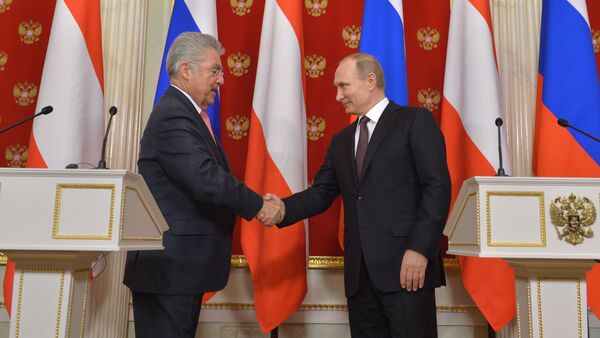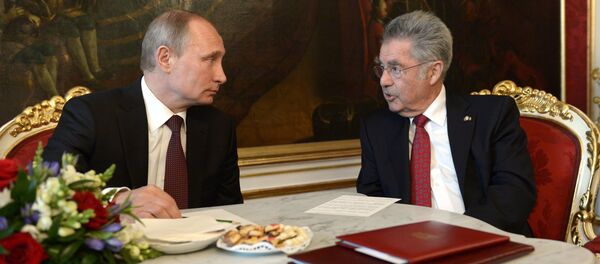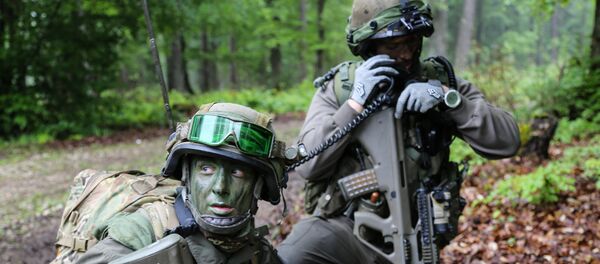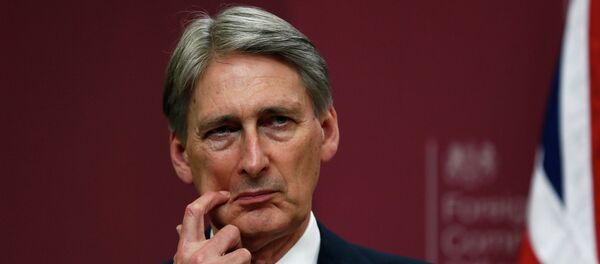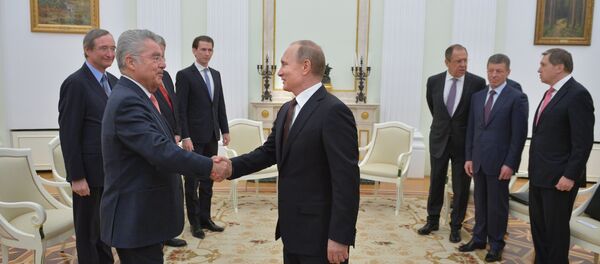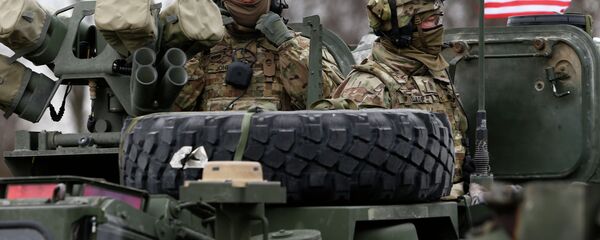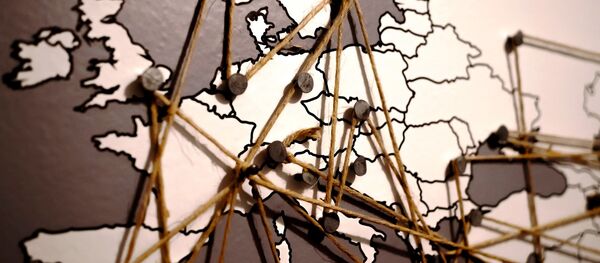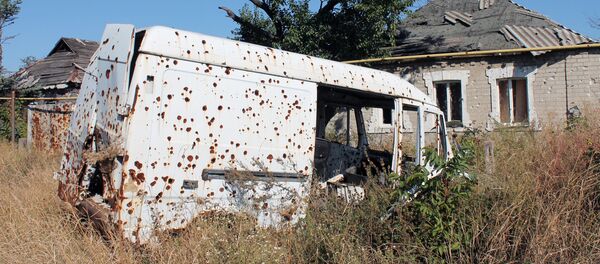At the same time, he noted, "Austria is a loyal member of the EU and it must adhere to the decisions that have been made in regard to Russia. But the Minsk process is the key to the possibility of resolving these problems."
In turn, President Putin stressed that despite the present difficulties, relations between Russia and Austria continue to show signs of progress, with Russian exports to Austria even rising slightly over the past year, despite an overall decline in trade turnover by 25%.
For its part, Russian media took note of the fact that Fischer was accompanied in Moscow by Othmar Commenda, the head of the Austrian General Staff, who met with his Russian counterpart and made headlines with his very direct statements about Austria's 'unwillingness to bend to external pressure'.
"I'm not going to carry out instructions and follow orders on who is worth talking to and who's not. That's exactly the reason why I decided to pay you a visit," Lieutenant-General Commenda said, at a meeting with Russian Chief of General Staff Valery Gerasimov.
Driving his point home, Commenda said that he was interested in his Russian counterpart's personal assessment of the current situation in the Middle East, adding that he would like to see Gerasimov make a visit to Vienna in the future.
Commenting on the Austrian officials' friendly comments, independent Russian online newspaper Svobodnaya Pressa recalled that they were a stark contrast from the types of commentary often made by other Western politicians and military officials.
In contrast to some other countries, the paper noted, "Austria has been oriented, by default, toward a more constructive position. Austrian authorities have repeatedly spoken out against sanctions, and have called for dialogue. Moreover, Austria is not a member of NATO, and therefore has more space for diplomatic maneuvers" (as amply demonstrated by Chief of General Staff Commenda's statements).
At the same time, however, "Vienna has never formally stepped out to oppose the extension of anti-Russian sanctions, even though its voice could block this EC decision," theoretically at least.
Speaking to the newspaper, Vadim Trukhachev, a professor at the Department of Foreign Regions at the Russian State University for Humanities, explained some of the nuances of the Austrian position, noting that they were well illustrated by the Austrian president's recent visit.
"To begin with, it must be noted that President Fischer is not eligible to run for a third term. His mandate will soon expire, and so he can now afford to take certain liberties." But that does not take away from the visit's importance. "Austria, in contrast to neighboring Germany, opposed the sanctions, or at least called for their moderation, even in 2014," when the deterioration in relations between Russia and Western countries was only beginning.
Moreover, Austria "has numerous projects in Russia, including Raiffeisenbank, the Strabag construction company, and Moscow's Aeroexpress; additionally, Austria is one of the largest European consumers of Russian gas. They do not have nuclear power plants, and as a result are very much dependent on our energy resources, which help to ensure the country's energy balance. The [EU's] imposition of sanctions against Russia was extremely disadvantageous to Vienna, and the country's leadership is doing everything it can to weaken them."
"Austria has seen the arrival of 450,000 people, and certainly cannot cope with such numbers. Austrians say that the main responsibility [for the crisis] lies on Germany's shoulders. Therefore, Fischer's visit to Moscow is largely a gesture of defiance to Merkel. In this way, the Austrians are showing their discontent with Berlin's policy."
"As far as the military line is concerned, Austria is not a NATO member, and has no plans to join in the near future; therefore, it's showing its independence. Its hands are less tied in this regard."
Ultimately, the academic suggested, "the Austrian officials' visit may in fact be a kind of probe. What the European Union or German officials cannot do directly, the Austrians can. What NATO cannot say, Austria, which cooperates with the bloc [but is not part of it], can."
Vladimir Bruter, an expert at the Institute of Humanitarian and Political Research, expanded on the latter.
"Austria's position when it comes to anti-Russian sanctions does not depend on the president. Most Austrian parties are opposed to sanctions, to the construction of a new 'Iron Curtain', attempts to 'contain' Russia, etc. The problem is that the EU, as a bureaucratic organization, must pursue a common policy; if it fails to do so, it would cease to exist as a political unit."
"The EU's sanctions against Russia are the result of agreement between its member states, and not the position of a single side. Yes, Washington pressed Brussels to adopt the sanctions, but they would not have come about without a minimum of internal consensus. If Vienna demanded the lifting of sanctions against Russia tomorrow, the EU would break out into a chaotic situation from which it would no longer be able to emerge, and another very serious crisis would begin."
As far as the potential for military cooperation, mentioned by Chief of Staff Commenda, is concerned, the analyst explained that in practice, the opportunities in this regard are limited, again stemming from Vienna's obligations to the EU.
"However, there are elements of cooperation which are entirely possible. Austria has suffered a great deal from its status as a transit country for migrants. If Russia were to provide it with technical assistance to better control migrant flows, prevent illegal border crossings, to keep track of [migrants] on Austrian territory, it would be a great service for Austria. In this instance, cooperation is possible, but it would be more along the lines of technical cooperation, rather than political or military cooperation."
Ultimately, Bruter noted, even if Austrian officials' visit was, for the most part, a courtesy visit, "a courtesy call in itself is also very important." It is another sign of "some countries public demonstration that they do not agree with the EU's general line, and seek to change it."
Unfortunately, as far as Russia is concerned, "Merkel's position, as long as she continues to head the German government, is unlikely to change." The German Foreign Ministry has indicated that Berlin would lift sanctions against Russia only following the implementation of the Minsk agreement.
At the same time, "they cannot admit that they themselves are to blame for the lack of progress, because then they would have to explain why they introduced sanctions in the first place…The current situation was created artificially, and now Merkel and Foreign Minister Steinmeier can't quite figure out how to get out of it."

